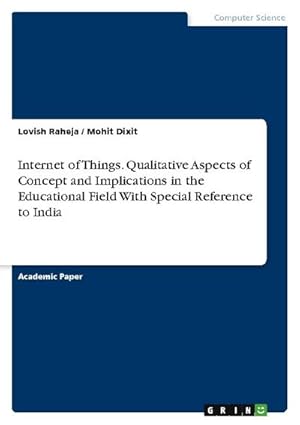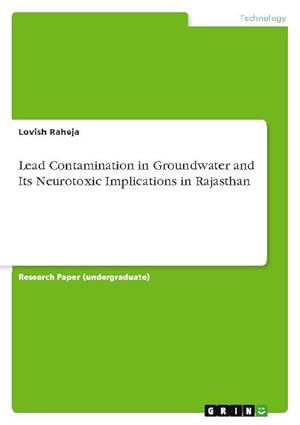lovish raheja (2 Ergebnisse)
FeedbackSuchfilter
Produktart
- Alle Product Types
- Bücher (2)
- Magazine & Zeitschriften (Keine weiteren Ergebnisse entsprechen dieser Verfeinerung)
- Comics (Keine weiteren Ergebnisse entsprechen dieser Verfeinerung)
- Noten (Keine weiteren Ergebnisse entsprechen dieser Verfeinerung)
- Kunst, Grafik & Poster (Keine weiteren Ergebnisse entsprechen dieser Verfeinerung)
- Fotografien (Keine weiteren Ergebnisse entsprechen dieser Verfeinerung)
- Karten (Keine weiteren Ergebnisse entsprechen dieser Verfeinerung)
- Manuskripte & Papierantiquitäten (Keine weiteren Ergebnisse entsprechen dieser Verfeinerung)
Einband
- alle Einbände
- Hardcover (Keine weiteren Ergebnisse entsprechen dieser Verfeinerung)
- Softcover (2)
Weitere Eigenschaften
- Erstausgabe (Keine weiteren Ergebnisse entsprechen dieser Verfeinerung)
- Signiert (Keine weiteren Ergebnisse entsprechen dieser Verfeinerung)
- Schutzumschlag (Keine weiteren Ergebnisse entsprechen dieser Verfeinerung)
- Angebotsfoto (2)
Gratisversand
Verkäuferbewertung
-
Internet of Things. Qualitative Aspects of Concept and Implications in the Educational Field With Special Reference to India
Verlag: GRIN Verlag, 2022
ISBN 10: 3346637549 ISBN 13: 9783346637543
Anbieter: AHA-BUCH GmbH, Einbeck, Deutschland
Taschenbuch. Zustand: Neu. Druck auf Anfrage Neuware - Printed after ordering - Academic Paper from the year 2020 in the subject Computer Sciences - Internet of Things, IOT, grade: NA, , course: Integrated B.Sc-B.Ed., language: English, abstract: Through the specific approach to the Indian context, the authors have tried to identify the challenges of the Internet of Things (IoT) in the country such as high expenses due to a large number of students, privacy and ethical issues, lack of trained workforce etc. Further, the authors have tried to give some recommendations to face and tackle the challenges in an efficient manner, the implementation of which may lead to the success of IoT in the educational field as well. IoT is transforming the modern world. Presently, every field of life is being considered under the scope of IoT. Education is one of them and the field to be explored the most as education leads the world and so the technological inputs in it. The purpose of this study is to qualitatively evaluate the concept of IoT and discover the potential areas of implementation of it in the educational scenario in Indian perspectives specifically. IoT is basically connecting the things with the internet for the major purpose of communication of information and execution of defined programs. India is going to make huge progress in this field as per the official estimations but the educational field in India still lacks many of the advancements which have been made recently and which are successfully working in the other fields. Connecting the learners and faculties to smart AI systems is one of the key ideas to be focused on. The entire education system which consists of administrative processes, learning and teaching activities, evaluation methods etc. may be transformed through it.
-
Lead Contamination in Groundwater and Its Neurotoxic Implications in Rajasthan
Verlag: GRIN Verlag, 2024
ISBN 10: 3963568542 ISBN 13: 9783963568541
Anbieter: AHA-BUCH GmbH, Einbeck, Deutschland
Taschenbuch. Zustand: Neu. Druck auf Anfrage Neuware - Printed after ordering - Research Paper (undergraduate) from the year 2022 in the subject Environmental Sciences, grade: A, , course: Research Methodology and Thesis Writing, language: English, abstract: Groundwater accounts for about 97% of the world's fresh water, serving as a crucial resource for various human activities such as urban water supply, agriculture, and industry. However, the growing demand for groundwater extraction, driven by advancements in technology and population growth, has led to increased stress on these resources. Consequently, this heightened exploitation raises the risk of groundwater contamination, particularly from toxic metals like lead (Pb).Lead contamination in groundwater poses significant health risks, especially for vulnerable groups like children. Even at low concentrations, lead, commonly found in various industrial processes, can have severe adverse effects on human health. Children, in particular, are susceptible to lead's neurotoxic effects, which can lead to long-term cognitive impairments and developmental disorders.Rajasthan heavily relies on groundwater for irrigation and drinking water needs, making it particularly susceptible to lead contamination. Despite numerous studies highlighting heavy metal contamination in Rajasthan's groundwater, a comprehensive overview specifically focusing on lead contamination and its neurotoxic effects is lacking. Therefore, this study aims to fill this gap by systematically examining the state of lead contamination in Rajasthan's groundwater and its implications for public health.The objectives of this study are to identify the main sources of lead contamination in Rajasthan's environment, elucidate the mechanisms and pathways through which lead contaminates groundwater, assess the current status of lead contamination in groundwater, evaluate its potential exposure to the general population, and examine the neurotoxic implications of such exposure. Additionally, the study aims to provide recommendations for policymakers to mitigate population exposure and associated health risks.By addressing these research questions, this study seeks to provide valuable insights into the extent of lead contamination in Rajasthan's groundwater and its broader public health implications. The findings and recommendations generated from this study have the potential to inform evidence-based policy interventions aimed at protecting public health and mitigating the adverse effects of lead contamination on vulnerable populations.



